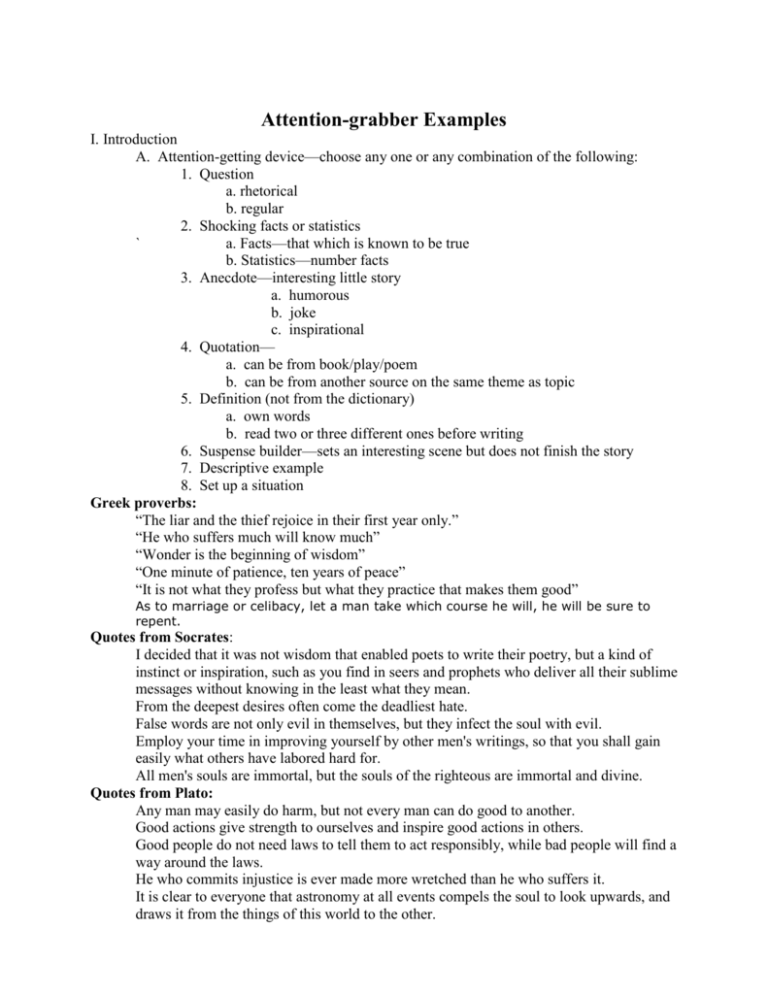

#Attention grabber examples for speeches how to#
If you watch some of the more successful public speakers, you will notice that they all have one thing in common: they know how to get attention within the first 60 seconds.Įvery great speech starts with an attention getter that captivates the audience and draws them in. They make people want to listen to what you have to say and set the tone for the rest of your speech. After all, how can you change their lives if they’re not even listening?

But before you even start, you need to get their attention. If you stumble while reading or it feels monotone, look for ways to jazz up the words and improve the flow.It’s show time! You have the audience in front of you and it’s time to give the speech of your life. A great way to check this flow is to practice reading it out loud. When you give the speech, think about the tone you should use, and be sure to write the speech in the same flow that you'd use in conversations. How you deliver the speech is also important. If you get them interested immediately, they will be more likely to stick with you until the end. If you spend too much time getting into your speech, people will zone out or start checking their phones. Remember to begin and end your speech with something that will gain and hold the attention of your audience. Oftentimes, speechwriters use rhetorical devices to make certain points easy to remember and to emphasize them. Find things that stand out and figure out what makes it interesting.

Read famous speeches and look at the way they are constructed. When writing your attention-grabbing statements, make sure you are writing what will get their attention, not just yours. Write the words you'll speak with passion and enthusiasm, but you also want your listeners to share that enthusiasm. Start by paying attention to your audience and their interests. You'll also need to finesse the speech a bit. The structure of how to write your speech is just the start. Whatever type of speech you decide to write, find ways to make your words memorable. Special occasion speeches entertain or inform your audience, like graduation speeches and toasts at celebrations.Įxplore the different types of speeches and decide what speech type fits your assignment. Your speech topic could be something like, "Life Is Like a Dirty Dorm," or "Can Potato Peels Predict the Future?" You might write a speech about a life choice, such as, "Abstinence Can Save Your Life," or getting involved in the community, such as "The Benefits of Volunteering."Įntertaining speeches entertain your audience, and topics may not practical. Persuasive speeches attempt to convince or persuade the audience to join one side of an argument. It also can relate to health and beauty, such as "How to Shape Perfect Eyebrows," or hobby-related, such as "Make a Great Bag Out of Old Clothing." This can be a how-to on podcasting for teens or a historical report on the Underground Railroad. Informative and instructional speeches inform your audience about a topic, event, or area of knowledge. Since there are different types of speeches, your attention-grabbing techniques should fit the speech type. Determine the Type of Speech You're Writing


 0 kommentar(er)
0 kommentar(er)
